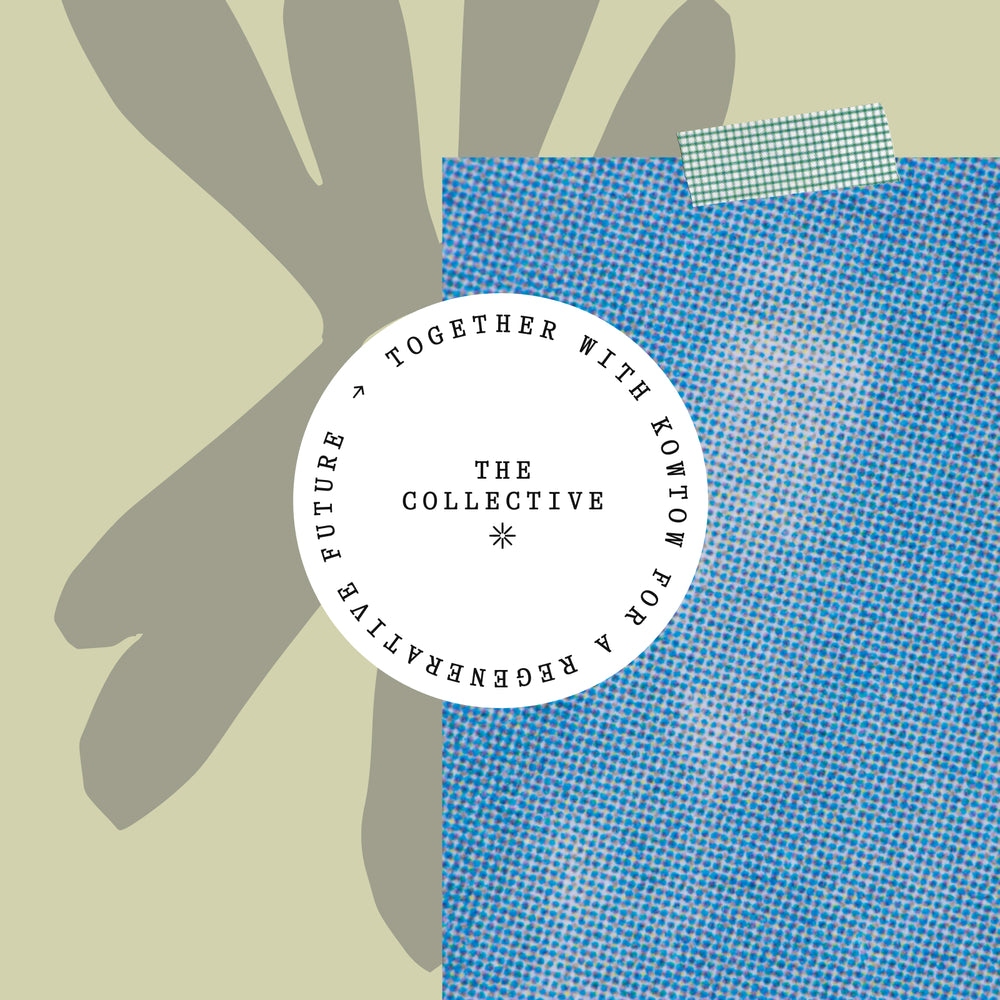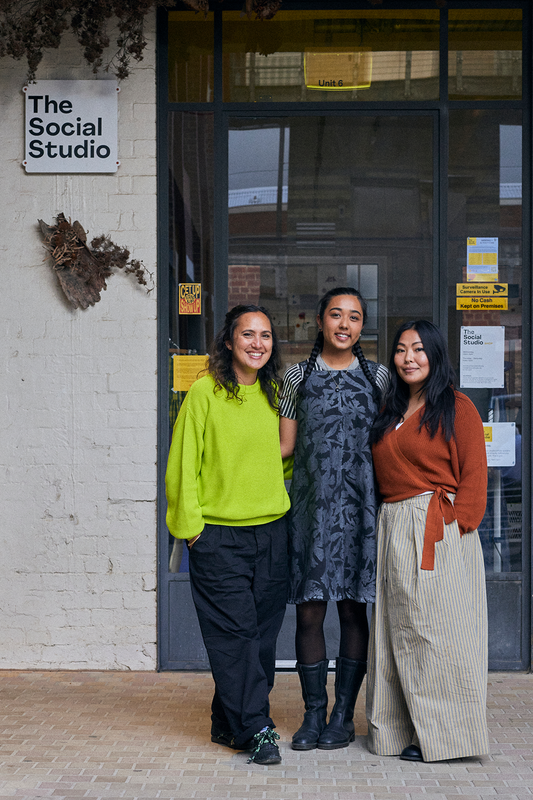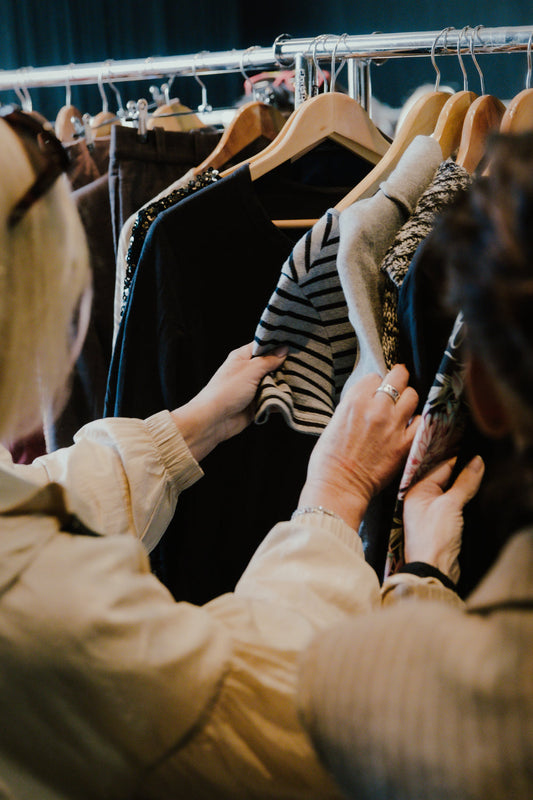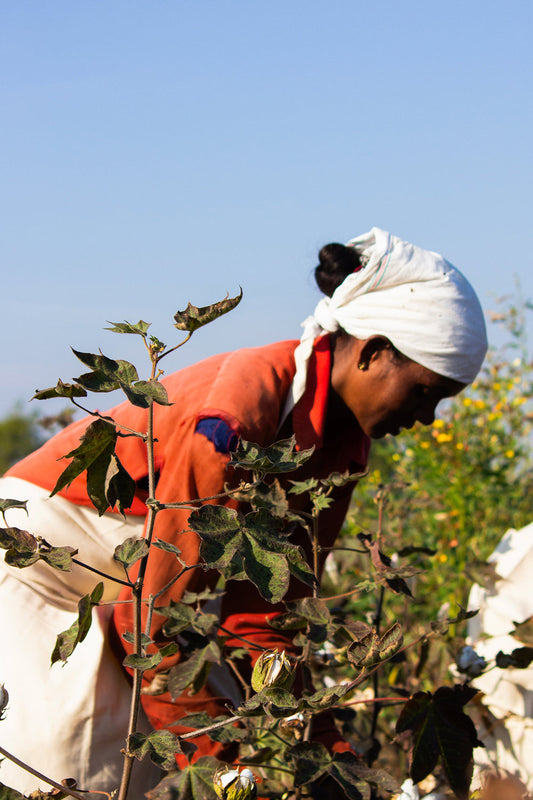
Senthil Nathan, CEO of Fairtrade Australia and New Zealand talks to us about what it really means when a product is Fairtrade certified. From the cotton fields to your closet, Senthil shares how Fairtrade is helping farmers build resilience, how certification works behind the scenes and why your choices can make a bigger difference than you think.
You have been working with Fairtrade for quite some time now. How did your career with Fairtrade begin?
My career with Fairtrade began in 2015 when I was employed at a multinational corporation. Despite having a progressive career, I felt a strong desire to make a more meaningful contribution to the world, particularly in smallholder agriculture, which is important to me due to my family background. I began searching for organizations that promote sustainable development through trade. During this search, I discovered Fairtrade and accepted a role that helps producer cooperatives in the Asia-Pacific region access fair trade markets.
What does it actually mean for a product to be Fairtrade certified?
Fairtrade certification means the product has been sourced ethically, with strong standards, full traceability, and independent checks all the way through. For cotton like yours, it ensures farmers are paid a fair price for their crop, plus a Premium they can invest in what matters most to them—whether that’s clean water, better tools, schools, or training. It also means workers’ rights are protected, the environment is respected, and the supply chain can stand up to proper scrutiny—from the field to the finished product.
How does Fairtrade assess and ensure a business or product meets its ethical standards during certification? And what does the certification process typically involve for businesses seeking Fairtrade certification?
Fairtrade’s certification process, overseen by the independent third-party body FLOCERT, verifies that businesses meet the established Fairtrade standards across the entire supply chain. Auditors conduct site visits to farms, cooperatives, and processing facilities to observe firsthand how these standards are being implemented.
For businesses, the process begins with an application and a readiness assessment to identify any areas needing improvement. Once a business is prepared, on-site audits are carried out to confirm compliance. Certification is awarded when all criteria are satisfied, followed by ongoing monitoring and annual audits to ensure continued adherence. This robust process ensures the Fairtrade mark represents authentic and reliable ethical practices throughout the product’s journey.
There are four key features of Fairtrade’s practices: Fairtrade Minimum Price, Fairtrade Premium, Fairtrade Standards, and Ownership by Producers. Can you explain (in short) what these features are?
That's right—those four features are what set Fairtrade apart and keep the system grounded in real impact.
Ownership by Producers – Fairtrade isn’t just for farmers—it’s run by them. Producers have 50% ownership of the global Fairtrade system and a strong voice in how it’s shaped.
Fairtrade Minimum Price – A safety net that protects farmers from market crashes. It’s the minimum they’ll be paid, no matter how low the market goes.
Fairtrade Premium – An extra amount on top of the sale price, which cooperatives choose how to invest—often in community infrastructure, education, or farm improvements.
Fairtrade Standards – The rules that guide how Fairtrade products are grown, traded, and sold. They cover things like safe working conditions, environmental protection, no child or forced labour, and democratic decision-making within farmer organisations. These standards are regularly audited to keep everyone accountable.
How does Fairtrade work with communities to ensure long-term impacts and resilience beyond the certification?
Fairtrade works together with communities to encourage long-term resilience by focusing on what truly matters to them—starting with education and skills development. This means helping farmers and workers gain access to training and knowledge that opens new opportunities, both on and off the farm. Equality is a core part of this approach, with Fairtrade standards promoting fair treatment and inclusion, especially for women and marginalised groups, so everyone has a voice in shaping their future.
Beyond certification, Fairtrade helps create stable and transparent trading relationships, giving communities reliable incomes and the confidence to plan ahead. These steady market connections are vital for investing in practical needs—whether it’s improving local infrastructure, adopting climate-smart farming, or expanding social services.
At the same time, Fairtrade works with cooperatives to strengthen their governance and decision-making processes, ensuring those investments reflect collective priorities and build lasting capacity.
In short, Fairtrade’s approach is about building meaningful partnerships that foster opportunity, equality, and self-determination—helping communities grow stronger on their own terms, not simply meeting certification requirements.
In today’s increasingly interconnected world, global supply chains have become more complex than ever. What challenges does this pose for businesses trying to uphold ethical and transparent standards across their supply chains?
There are three main challenges to consider: supplier challenges, logistical challenges, and consumer challenges. Tracing the last mile of the supply chain is complex, and identifying sustainability issues and addressing them is even more difficult. Additionally, rising trade barriers and fluctuations in the shipping sector present further complications. Many consumers are also facing cost-of-living challenges.
For ethical brands aiming to succeed in such a complex marketplace, it is essential to earn the trust and respect of stakeholders, have clear guiding values, and offer value to consumers. Importantly, effective communication is key. I've seen businesses with a strong moral compass struggle in the marketplace simply because they failed to communicate effectively.

At Kowtow, we use 100% Fairtrade organic cotton. What are the challenges cotton farmers face, and why is it important to buy Fairtrade cotton?
I will focus on two key issues: water scarcity, pest and disease infestation. Cotton production is water-intensive and vulnerable to pests. Smallholder farmers, who already face economic hardships, are overwhelmed and further distressed by such challenges.
Through Fairtrade partnerships, these communities can build resilience. A recent study conducted in India revealed that 96% of Fairtrade organic and in-conversion farmers do not use chemical pesticides at all, compared to 60% of non-Fairtrade conventional farmers. Additionally, Fairtrade organic and in-conversion farmers achieve a 20% higher water productivity rate than their non-Fairtrade counterparts, and they have a 14% smaller water footprint than non-Fairtrade conventional farmers. Buying Fairtrade cotton could help scale up such an impact to a larger population.
Fairtrade is widely recognised as the most trusted ethical label. However, as more consumers aim to shop consciously, there has also been a rise in greenwashing and misleading marketing around businesses’ social practices. What can consumers do to make sure their purchases genuinely support ethical and fair companies?
There’s a lot more noise in the ethical space now—and not all of it is genuine. As more brands try to appeal to conscious shoppers, we’re also seeing a rise in vague claims, unverified promises, and feel-good language that doesn’t always match up with reality.
One of the most important things consumers can do is look for independent, credible certification—like Fairtrade. It’s not based on trust in a brand’s word, but on clear standards, regular audits, and full supply chain traceability. It also helps to ask simple questions: Who grew this? Were they paid fairly? Is there proof? If a brand can’t answer clearly, or relies on general terms like “sustainable” without evidence, it’s worth digging deeper—or choosing something else. Real change doesn’t come from marketing—it comes from transparency, accountability, and the choices we make every day.




